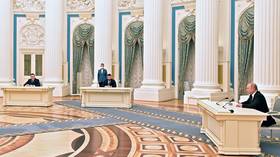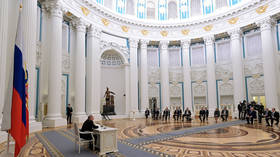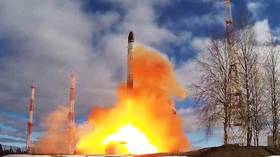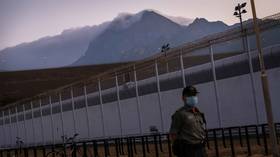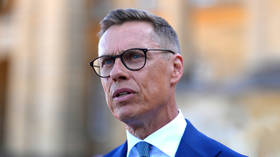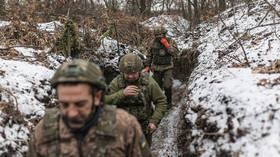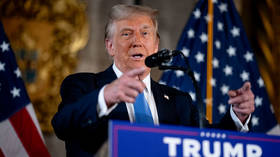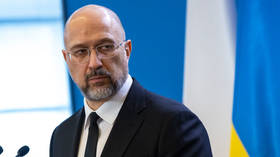Russia discloses plans for Donbass military bases
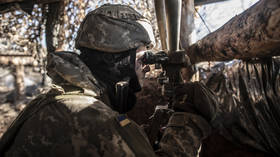
While Russia has struck a deal that enables it to deploy troops and military hardware on a long-term basis to sites across the Donbass, at present it has no concrete plans to establish installations in the newly recognized Donetsk and Lugansk People’s Republics, Moscow has revealed, despite speculation its troops are already there.
Speaking to reporters on Tuesday, Deputy Foreign Minister Andrey Rudenko explained what moves his country’s armed forces are considering taking in the region.
“So far, there hasn’t been any talk about setting up bases” he said. “But if necessary, we will do everything that needs to be done. The agreement stipulates that,” he said.
His comments come shortly after Russian President Vladimir Putin signed a decree officially recognizing the Donetsk and Lugansk People’s Republics as sovereign nations. Following the Kremlin’s affirmation of their independence, Putin ordered the Russian armed forces to “secure the peace” in the newly recognized Donbass republics. Within hours, unconfirmed reports and videos emerged purporting to show Russian troops moving across the border.
Under the terms of a friendship and co-operation deal ratified by the parliaments of the two breakaway regions on Tuesday, Moscow can establish military bases on their territory. However, Ukraine and many Western nations accuse Moscow of having sent troops to the region in 2014 and maintaining a military presence there since then. On Tuesday, the EU's top diplomat, Josep Borrell, claimed that deployments of Russian troops had begun crossing the border shortly after the decision to grant thm recognition.
The leaders of the Donetsk and Lugansk regions, Denis Pushilin and Leonid Pasechnik, formally appealed to Putin to proclaim them sovereign nations amid reports of heavy shelling between the two breakaway regions and Ukraine’s armed forces. Last week, the two regional chiefs announced that they had begun evacuating civilians to Russia, citing a sharp spike in hostilities, and ordered the mobilization of all able-bodied men to be ready to take up arms in a potential conflict.
Ukraine rejects claims it is preparing to attack, with Aleksey Danilov, the secretary of Ukraine’s National Security and Defense Council, claiming that “there is an attempt to provoke our forces,” and that Kiev’s troops “can only open fire if there will be a threat to the lives of our service members.”
Donetsk and Lugansk broke away from Kiev in 2014 following the events of the Maidan, when violent rallies toppled Ukraine’s elected government. However, until this week, neither Russia nor any other UN member nation had recognized their bid for independence.
Western officials have been warning for months of an impending Russian invasion of Ukraine, and have suggested that Moscow could use “false flag” operations against the two territories to justify bringing the army in. The Kremlin has repeatedly denied that it has any aggressive intentions and has expressed concern about the events taking place in the separatist republics.
In Putin’s address on Monday, the Russian leader said that affirming their sovereignty came as a direct result of the failure of the Minsk agreements, inked to put an end to the long-standing conflict in eastern Ukraine.
Kiev’s top diplomat has also previously warned that Moscow affirming the autonomy of the Donbass republics would undermine existing peace accords, signed in the Belarusian capital in 2014. “If a decision is made… Russia will de facto and de jure withdraw from the Minsk agreements with all the accompanying consequences,” Dmitry Kuleba said earlier this month. However, in his address to the nation, Putin claimed that Ukraine had abandoned the deal, insisting that “they are not interested in peaceful solutions.”
